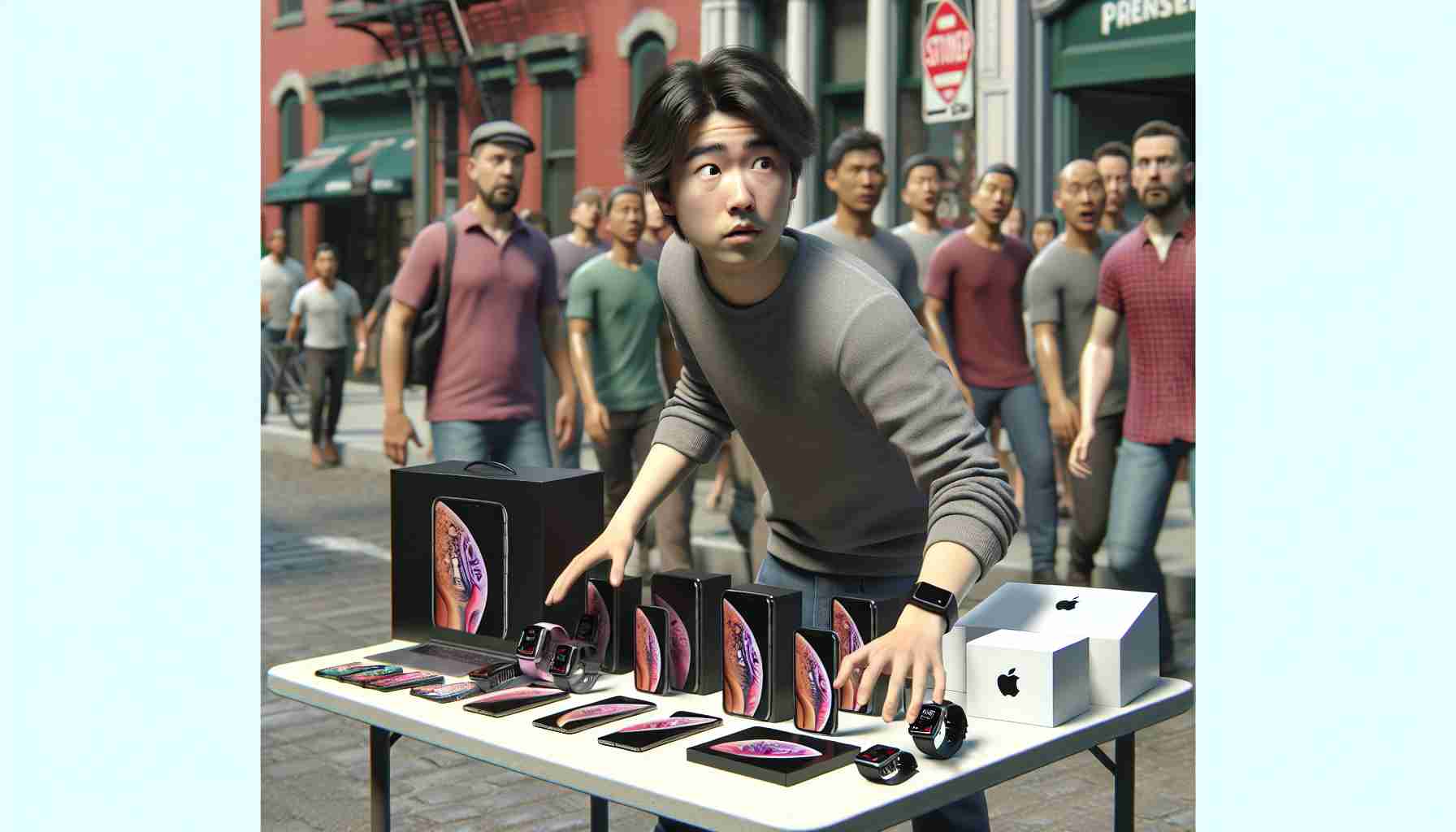A recent sting operation by Redwood City Police Department officers unraveled a counterfeit electronics scheme run by an 18-year-old individual. The arrest, which took place on Thursday, followed a month-long investigation tracing back to a January transaction involving the sale of what appeared to be genuine Apple AirPod Max headphones. The purchase took place at the Sequoia Station in Redwood City.
The customer was lured by the high-quality facade of the product, complete with authentic-looking Apple packaging and real serial numbers. It was only when they put the product to use that the realization of their fake nature came to light. The device malfunctioned, leading to further scrutiny.
Investigative efforts by the police revealed that the serial numbers accompanying the counterfeit items were illicitly obtained from actual Apple products. This meant any warranties normally associated with the numbers were void.
RCPD’s Downtown Services Unit identified and responded to several suspicious listings on online marketplaces including Facebook Marketplace and OfferUp. Through a series of undercover purchases, authorities were able to confirm the fraudulent nature of the headphones and trace them back to the source, Jose Angel Sanchez, a resident of Redwood City.
A search of Sanchez’s home led to the discovery of a stash of fake electronics valued at over $2,000. The suspect was subsequently taken into custody and faced charges at San Mateo County Jail.
The police strongly advise online shoppers to diligently authenticate and test electronics prior to purchase, particularly offers that seem unusually favorable. Verifying serial numbers with manufacturers and choosing secure transaction locations are recommended preventive measures against falling victim to such frauds.
Questions:
1. What are the implications of selling counterfeit products?
2. How do counterfeit sales impact the brand and consumers?
3. What are the legal repercussions for selling counterfeit goods?
4. How can consumers protect themselves from purchasing counterfeit items?
Answers:
1. Selling counterfeit products is illegal and can lead to criminal charges, fines, and imprisonment for the seller, as well as harm the reputation and sales of the original manufacturer.
2. Counterfeit sales undermine the brand’s reputation, potentially damage the brand’s value, and deceive consumers who believe they are purchasing authentic goods. Consumers may also be exposed to subpar or dangerous products.
3. The legal repercussions for selling counterfeit goods can include criminal charges, which may result in fines, confiscation of the goods, and imprisonment.
4. Consumers can protect themselves by purchasing from authorized retailers, checking the authenticity of the product with the manufacturer, and being cautious of deals that seem too good to be true.
Key Challenges or Controversies:
– Detecting Counterfeit Products: Identifying fake products can be challenging due to high-quality imitations. Authorities and consumers need to be vigilant and informed.
– Online Marketplaces: Online platforms are frequently exploited by counterfeit sellers, increasing the challenge for enforcement and protection for consumers.
– Intellectual Property Rights: Counterfeiting infringes on intellectual property rights, causing legal disputes and financial losses for original manufacturers.
Advantages and Disadvantages:
Advantages of Counterfeit Goods (for the seller):
– Higher profit margins due to lower production costs.
– Exploiting the existing demand for popular branded products.
Disadvantages:
– Legal consequences for the seller including fines, criminal charges, and imprisonment.
– Damage to the reputation and financial standing of the authentic brand.
– Risk of harm to consumers due to potentially inferior or unsafe products.
– Overall negative impact on the economy.
To explore more about consumer protection or reporting counterfeit goods, one might visit the following:
– Federal Bureau of Investigation (FBI) for information on reporting and investigating counterfeit products.
– Apple to verify product authenticity or report suspicion of counterfeit items.
– Federal Trade Commission for tips on consumer protection and how to avoid scams.
